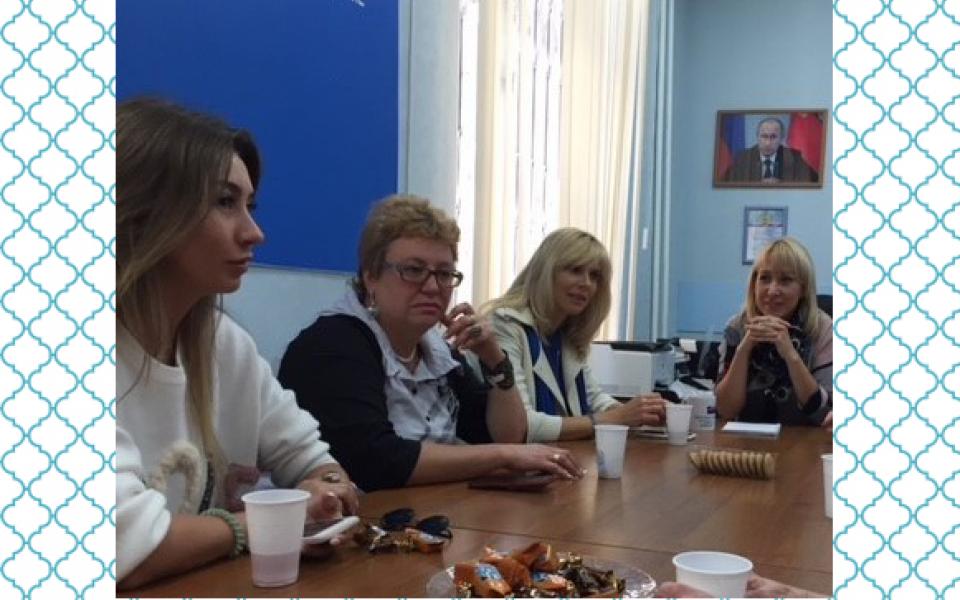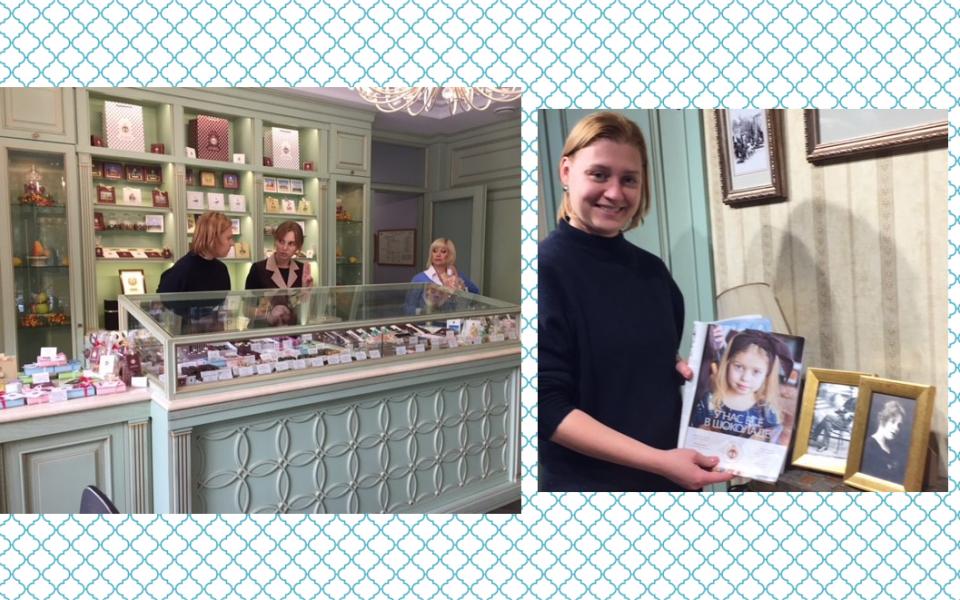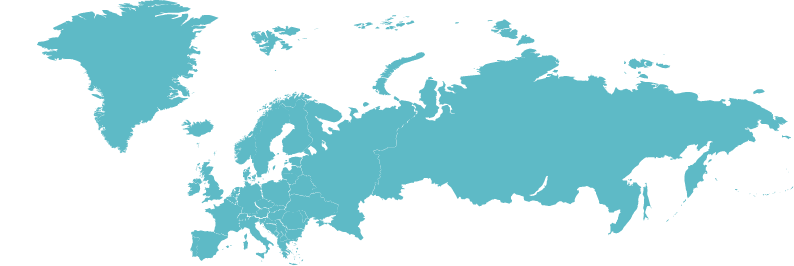
Pictured: Christina
Christina
Christina, a single mother of an 8-year-old girl, runs her own “Women’s Entrepreneur Society” in Novosibirsk, the capital of Siberia. She explains that her company “supports women in leadership through co-creation and communication.” This translates from Russian to English as “ecological communication.” She said, “To help each other hear ourselves from the inside gives me great energy.”
Christina put into words what I had been witnessing as I spoke with entrepreneurs here. Each person has a personal story to tell – they act from the inside out.

Tatiana and The Chocolate House
Tatiana
Tatiana, a neurologist by training, chose to leave her medical profession because she could not practice in accord with her values. She decided to pursue a deeper calling. She spoke of her great grandfather, who opened a chocolate factory in 1917 only to have it destroyed and her great grandfather imprisoned by the Bolshevik Revolution. Some chocolate recipes were saved. Tatiana’s dream was to renew her family tradition as fine chocolatiers. Today, The Chocolate House is an oasis of peace and beauty in central Novosibirsk brimming over with incredible chocolates! The back room is a museum that tells the family’s story. Tatiana hopes her daughter will carry on the family spirit and tradition – providing sweet goodness and beauty at The Chocolate House in Novosibirsk.
Alexander
Alexander’s father was a journalist stationed at the far eastern edge of Russia during the Cold War years. Alexander recovered photos his father took of faces of people and their work and life conditions. Alexander is a businessman and also pursues a deep dedication to peace. He wants these photos showing ordinary people at work to be placed in contrast to the Cold War propaganda of the day. Alexander wants Americans and Russians to “see ourselves in each other.” How can we justify wars of any kind with people whose dignity and humanity so match our own?
The very north of Russia in Soviet times, during the Cold War. People lived there of different nationalities. They worked in harsh living conditions. They loved each other, their children, they had families and dreams of a bright future. And none of them ever did want war ... I really want as many people as possible to see these photos - so that everyone knows that we always wanted and want to live in peace ... This is the story in the photographs that my father left me. He was a journalist in Yakutia from 1965 to 2006. These are restored pictures from his archive, many of which are more than 50 years old.
- Alexander Smolyanov
Tanya
Tanya is a feminist philosopher and university professor of Gender Studies. She also scours her hometown, Academgorodok, scavenging for “items of meaning.” She contributes to an Integral Home Museum created by her friend. Artifacts from Russia’s history (each item must come with a story) fill the front room of a small flat. We saw a jeweled glass tea leaf container used by Pushkin; a brass candlestick carried by Czar Nicholas; a handmade wood suitcase made by the owner’s mother when she was released from the gulag after Stalin’s death. Here, history is not to be read in the “headlines” and in textbooks – but in a chaotic array of artifacts - items of meaning, that raise questions, convey feelings, help us see people and hear the kinds of stories that feed today’s Russia.
Sergei
Sergei is a lawyer whose title includes the words “Business Defense.” Sergei participated in the Center for Citizen Initiatives program several years ago. He worked with business people in the US and learned the significance of laws that protect and constrain business practices. Serge’s favorite animal is the eagle – he admires its power and clarity. His passion is to advise entrepreneurs how to work effectively, given government constraints and corruption. Constraints, bureaucratic limitations and threats abound, and, according to Sergei, so does people’s tenacity. He is there to help them face the dangers, pursue their business ideas – and succeed! He says, “One can’t solve the world’s problems, but we can do what gives our own lives meaning.”
More about this series: Russia Today - Building Bridges
URI Senior Consultant Sally Mahé shares thoughts from Russia, where she is traveling with the Center for Citizen Initiatives. The trip is called a "Diplomatic Mission to the Russian Federation by American Citizens." Its purpose is to provide an opportunity “to make inquiry and analysis by traveling to Russia to learn additional points of view about US-Russia issues." The task is to begin “personal diplomacy to intervene in war-making efforts that could end all life on the planet.”
Along the way, Sally is connecting with URI members and Cooperation Circles (member groups) as she examines the actions of ordinary citizens meeting and building bridges of understanding together.
See the rest of the Russia Today - Building Bridges series here.
